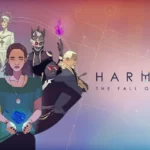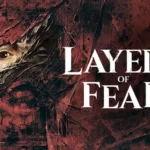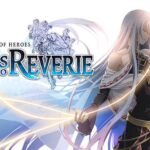Final Fantasy 16 is all about reinvention, spectacle, and the gloriously heartfelt human moments found within. FF16 takes an approach when it comes to the story, more than any other entry in the franchise but yet delivers on the narrative staples of the franchise that fans love so much.
Even though the game tells the story of larger-than-life battles and god-like beings, there is a thematic link connecting the experiences of the people on the ground level with the powers that shape their destinies. Beneath its dark tones, lies a captivating story about characters who cling to their humanity, the bonds that empower them, and the extraordinary lengths they are willing to go to improve the world.
Final Fantasy 16 steers away from the series’ RPG roots, delivering a character action title, akin to the likes of Devil May Cry and the older God of War titles. Initially, the battles against Eikons (divine beings) may appear as explosive set-pieces, but they evolve into meaningful moments and narratively impressive spectacles.
Some of these battles are truly awe-inspiring in a way that has never been seen in the video game industry before, all of which are accompanied by mesmerizing music as is the signature of the franchise. These moments make Final Fantasy 16 one of the most impactful entries in the series, which could stand tall among the best of the best.
Despite the bombast, humans are at the heart of Final Fantasy 16
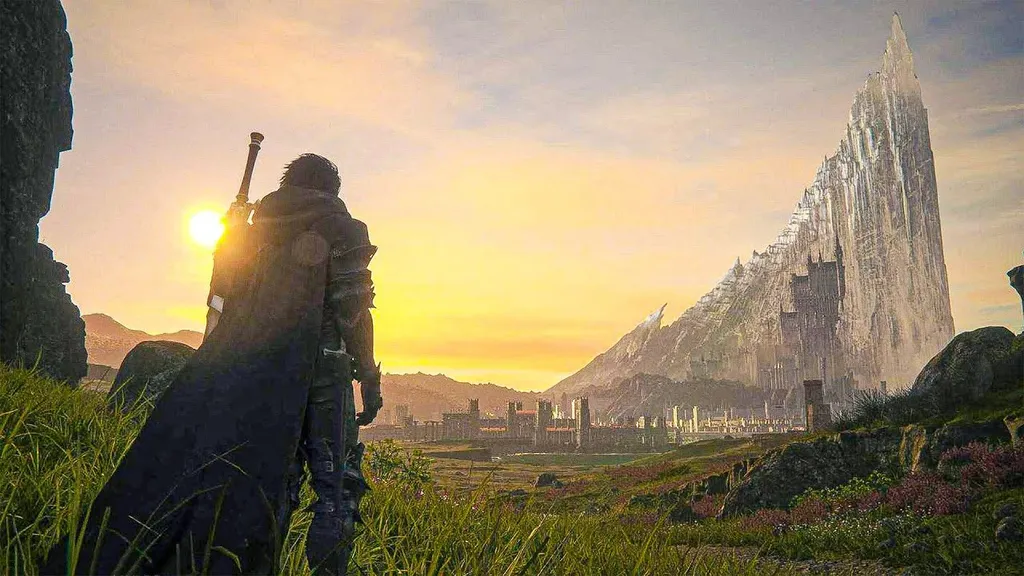
Despite the story’s initial emphasis on the nations and political structures of Valisthea, Clive’s growth takes center stage in FFXVI. The world of Valisthea is in a state of decay and is torn apart by war, driven by the desire for resources, particularly the crystals.
Since these crystals possess diverse magical properties, those with the innate ability to wield magic are mistreated, oppressed, and treated as possessions—mere tools to be used and sacrificed in service of their supposed superiors. This leads to the main beats of the narrative as the characters seek liberation and revolution. FFXVI wholeheartedly embraces these themes, utilizing them as a sturdy foundation to shape every aspect of the story and its characters.
FFXVI’s writing demonstrates an understanding of the intricate dynamics inherent to the subject matter, and it excels in empowering characters by making their experiences the focal points of the dialogue. It is gratifying to witness the game explicitly express what needs to be said. Although occasionally, the execution becomes heavy-handed, lacking some nuance that could have enriched the exploration of certain themes or perspectives.
Clive and his brother Joshua become entangled in the events unfolding in Valisthea due to their membership in a royal family entrusted with the power of Phoenix, one of the formidable Eikons that disrupt the power dynamics within the realm. A tragedy befalls their family early on, propelling the story forward and highlighting the significance of Dominants—the few individuals capable of harnessing and transforming into Eikons—as weapons of mass destruction. While initially appearing as a blessing, this power is, in fact, a curse, and the immense destructive force they possess comes with dire repercussions.
FF16 offers fresh takes on tired tropes
This amalgamation of political intrigue, social injustice, and the fantastical elements characteristic of Final Fantasy grants the story the mythical grandeur expected of the series while infusing it with profound meaning. The portrayal of the Eikons as a reimagination of Final Fantasy’s iconic summons, contextualized within the narrative, ensures that despite their extravagant and extravagant nature, FFXVI’s story remains grounded.
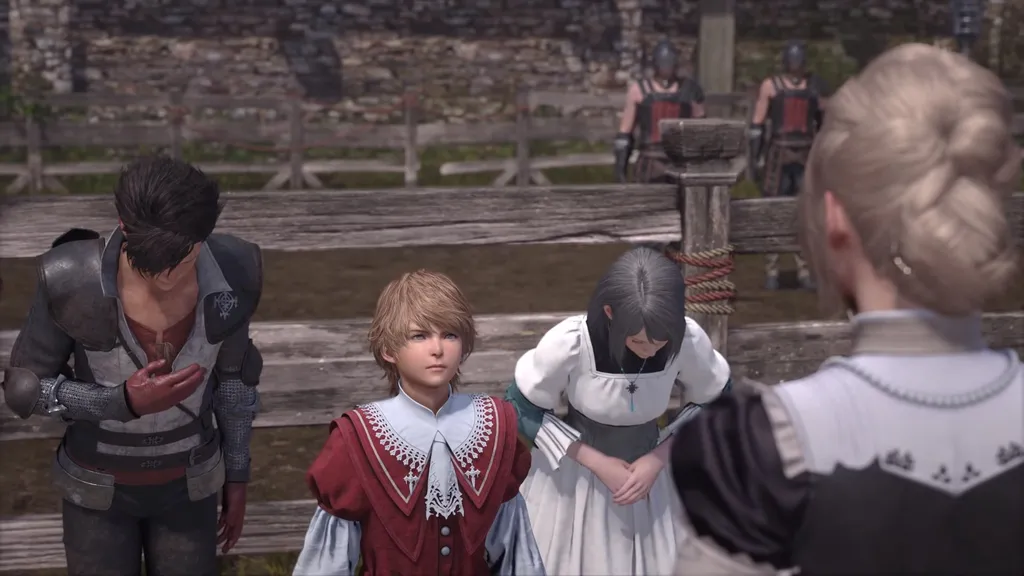
Within the themes of rebellion and the display of godlike power lie compelling personal narratives of revenge and redemption. The weight of past sins, burdens not entirely of their own making, heavily burdens the main characters.
Love conquers all, even in a tale with Eikons in it!!
Despite the somber undertones, Final Fanatasy 16 remains fundamentally a tale of love and its various manifestations. It beautifully and sincerely explores the bond of brotherhood, portraying familial love with a depth that resonates profoundly. Just as expected from Final Fantasy, the power of human connections emerges as the driving force that empowers the characters to persevere, imbuing them with a purpose worth fighting for in their quest.
These more nuanced themes resonate strongly because the personalities of key characters like Clive, Joshua, Cid, and Jill are brought to life through exceptional vocal performances. Clive, often portrayed as a gruff individual with little to be joyful about, becomes all the more impactful when he breaks free from his emotional shell. His screams and cries of desperation are genuinely haunting, evoking a profound sense of pain that resonates within your core.
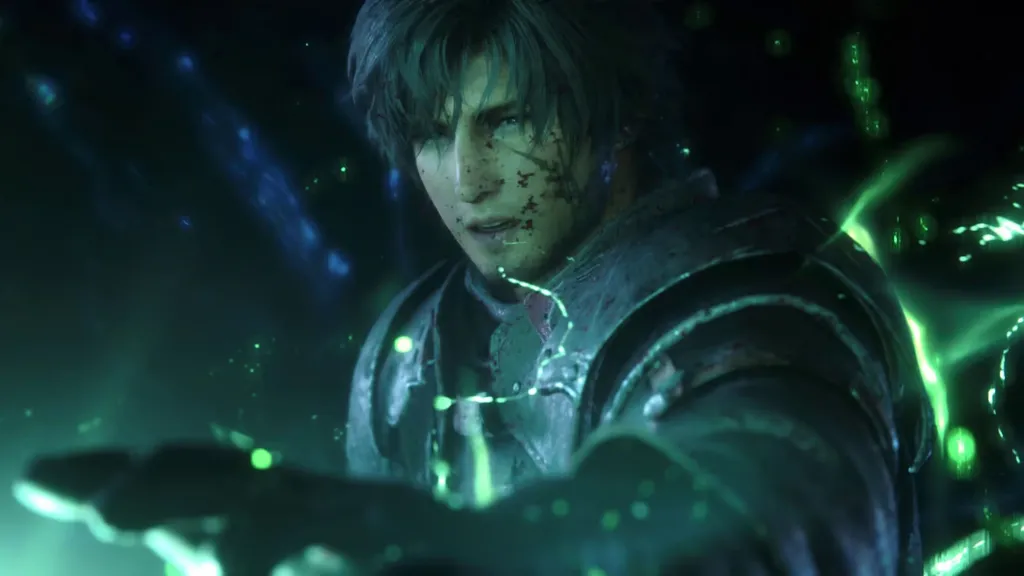
Conversely, when he cracks a smile or lets loose, it’s a moment of celebration. This authenticity makes him one of the most relatable protagonists in the Final Fantasy series. Cid commands attention with the sheer bass in his voice, his smooth charisma, and sharp wit stealing the spotlight in every scene.
Final Fantasy 16 takes bold risks and successfully lands them when it matters most. It takes some time for the narrative to fully come together, and it occasionally stumbles into disappointing tropes along the way. However, at its pinnacle, whether it’s the exhilarating thrill of the action or the raw emotional honesty—sometimes even the harmonious blend of both—FFXVI strikes with such force that it deeply resonates within my heart.
DMC’s Dante would feel right at home in Final Fantasy 16!
A significant factor that kept me engrossed in FFXVI is its stylish action combat, which is intricately intertwined with the game’s identity. While you only assume control of Clive throughout the entire game, his repertoire of Eikon abilities gradually expands alongside the progression of the story. Clive glides on the battlefield, creating the feel of a master swordsman, hacking and slashing his enemies out of the way.
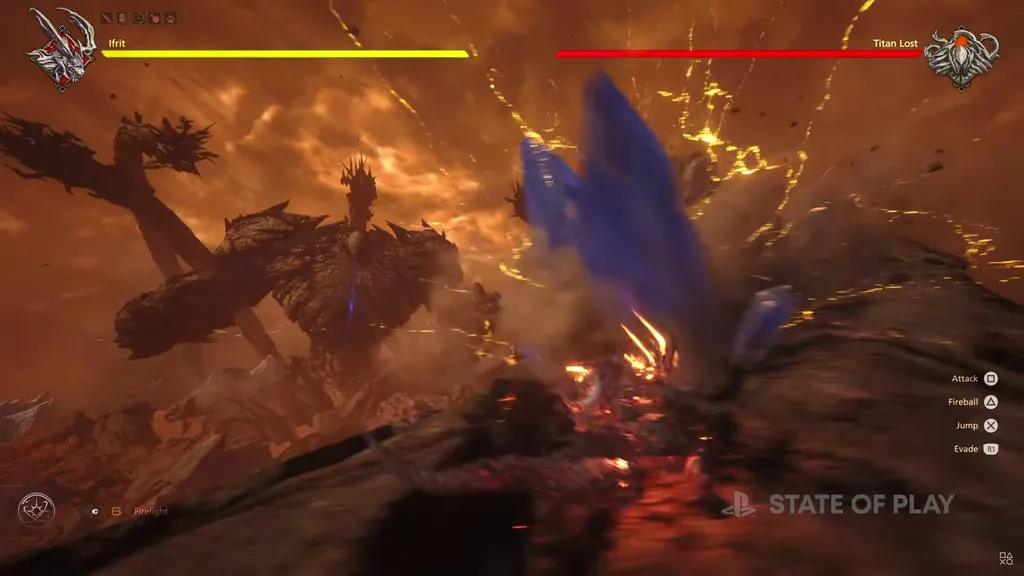
Though FF’s fundamental design elements of an RPG are not too far away. The game incorporates skill trees, a leveling system, upgradable gear, and statistics that contribute to a sense of progression. However, during combat, your mastery of Clive’s technical abilities and Eikon powers becomes the determining factor for victory. In battle, you can equip three Eikons and seamlessly switch between them on the fly.
Each Eikon possesses two powers on cooldown and a unique utility move that can be executed at any moment. It is crucial to customize and strategize your Eikon abilities, treating it akin to creating loadouts or team compositions in other games. With properties such as launching, midair execution, charge-ups, or area-of-effect damage, the possibilities for creative and devastating combos abound.
The bombastic boss battles put the flashiest Hollywood blockbusters to shame!
The boss battles in FFXVI are brilliantly designed, showcasing the full potential of the stylish-action combat system. Typically, you strive to deplete the boss’s stagger meter and then unleash a barrage of attacks, meticulously planning your sequence to maximize the damage multiplier that comes into play when the boss is staggered, reminiscent of the mechanics in Final Fantasy VII Remake.
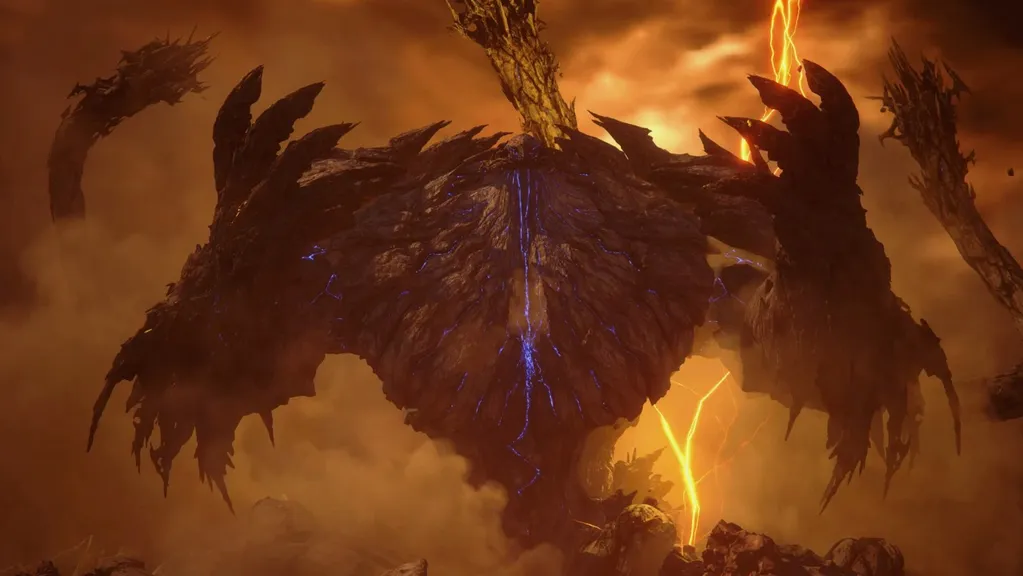
Because the progression of Eikon abilities is tied to the advancement of the story, it takes time for the more intricate gameplay elements to become available. While this approach strengthens the narrative integration with the gameplay, it results in somewhat uneven pacing in the first half of the game. It’s a bit disappointing because the later Eikon abilities introduce fascinating possibilities and add layers of depth to the gameplay experience.
FFXVI does not pose a particularly challenging difficulty overall, but there are instances where you may encounter DPS checks or enemy attacks that deal significant damage in a single hit.
A straightforward structure
FFXVI follows a relatively straightforward structure and is not a complex game. You have a central base called The Hideaway and hub areas specific to each region that gradually unlock as you progress through the game. These hub areas become populated with side quests that serve to expand the world and offer additional content.
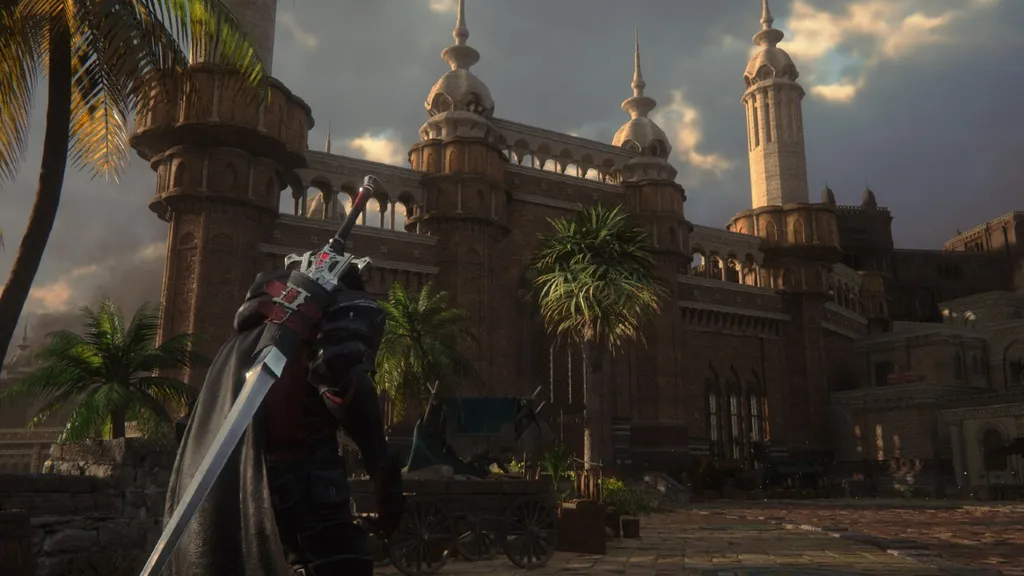
Once you gain access to the Hunt Board, you will find optional boss fights within these regions, rewarding you with satisfying challenges, experience points, and materials for improving your gear. However, the main quest primarily consists of combat-focused scenarios, resembling linear dungeons with groups of enemies interspersed with a few boss encounters. These sequences not only contain some of the most impactful story moments and impressive cinematics but also serve as the moments where the gameplay truly shines, establishing an enjoyable rhythm of thrilling battles.
Uninspired side-quest design
Unfortunately, sidequests are among the weaker aspects of FFXVI. However, having completed all of them, I still believe they hold value in humanizing the people of Valisthea. In fact, I would argue that a few of them are crucial for gaining a comprehensive understanding of key characters and their relationships.
Nonetheless, outside of these significant quests that offer heartfelt scenes as rewards, most sidequests consist of awkward dialogue sequences and objectives that fail to fully utilize the game’s strengths. Additionally, the writing occasionally falls flat in these moments, further highlighting the stark contrast in quality compared to the exceptional storytelling of the main quest.
Eikonic Battles!
The most impressive moments in FFXVI come during the battles between Eikons: pivotal encounters where fully transformed Dominants risk everything and unleash their full power. Although there aren’t many of these boss fights, the ones that occur from the midway point until the end of the game deliver some of the most exhilarating and visually stunning spectacles in the realm of video games. Furthermore, as the game progresses, new powers specifically designed for these battles become available, ensuring that the gameplay experience isn’t solely reliant on quick time events or simplistic button mashing.
In heated battles, emotional cutscenes, and brief treks across Valisthea, the presence of an evocative soundtrack is an essential element that defines the Final Fantasy experience. Composer Masayoshi Soken and his team play a significant role in creating the special MMORPG experience of FFXIV, and their work on FFXVI further showcases their mastery of the series’ music.
A heavenly soundtrack elevates the game on all fronts
The resonating piano pieces evoke a sense of tranquility and longing that harmonize with the expansive landscapes, reminiscent of the overworld themes heard in FFXIV. The commanding orchestras and choirs add a profound weight to pivotal battles. However, Soken’s signature style shines through as he breaks away from thematic conventions, incorporating electronic tunes and heavy guitars that seamlessly blend into the game’s atmosphere.
The recognizable melodies that evolve into powerful leitmotifs capture indescribable emotions, serving as beautiful expressions of the complex feelings experienced by the characters and myself as the player. In Final Fantasy, music plays an integral role in storytelling, and FFXVI executes this aspect with mastery, upholding the tradition of the series.
Final Thoughts
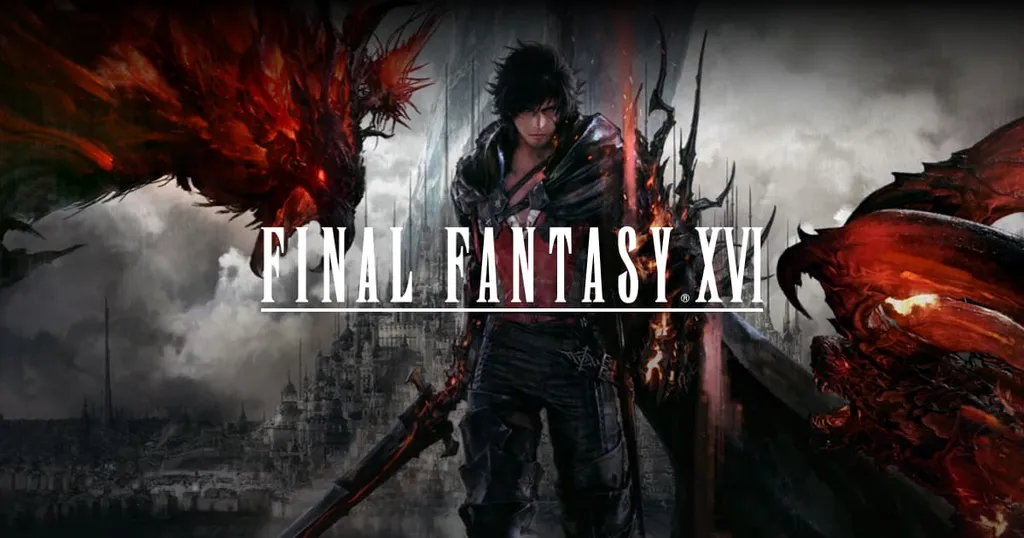
It is heartening to see this bold approach to both story and gameplay in the series that has had so many entries, both mainline and spinoffs. Final Fantasy 16 is yet another Square Enix hit that revitalizes the franchise once again. While it’ may have some shortcomings,’s not perfect by any means FFXVI deserves recognition for its breathtaking moments and the characters who embody them. It succeeds in earning its place within the esteemed Final Fantasy pantheon as one of the exceptional entries, doing so on its own terms.
Also Read:
- Amnesia: The Bunker review
- Crash Team Rumble, a Review of Reviews
- Bitcoin and Crypto: Brace for Parabolic Price Move as Ethereum Institutional Interest Surges
- MotoGP 23 Review: A Step Forward
- All about Madden 24: Cover, features, and Madden 24 deluxe edition
FAQs
Final Fantasy XVI incorporates themes of political drama, social injustice, and the fantastical tropes of the series. It explores the consequences of wielding immense power, the burden of sins, personal stories of revenge and redemption, love in various forms, and the strength of human bonds.
One of the strengths of Final Fantasy XVI lies in its engaging combat system, impactful storytelling, and stunning boss battles. The game also successfully incorporates the series’ musical tradition. However, some players may find the pacing odd in the first half of the game due to the gradual introduction of deeper gameplay elements. Additionally, sidequests are considered weaker parts, with stilted dialogue and objectives that may not fully utilize the game’s strengths.


